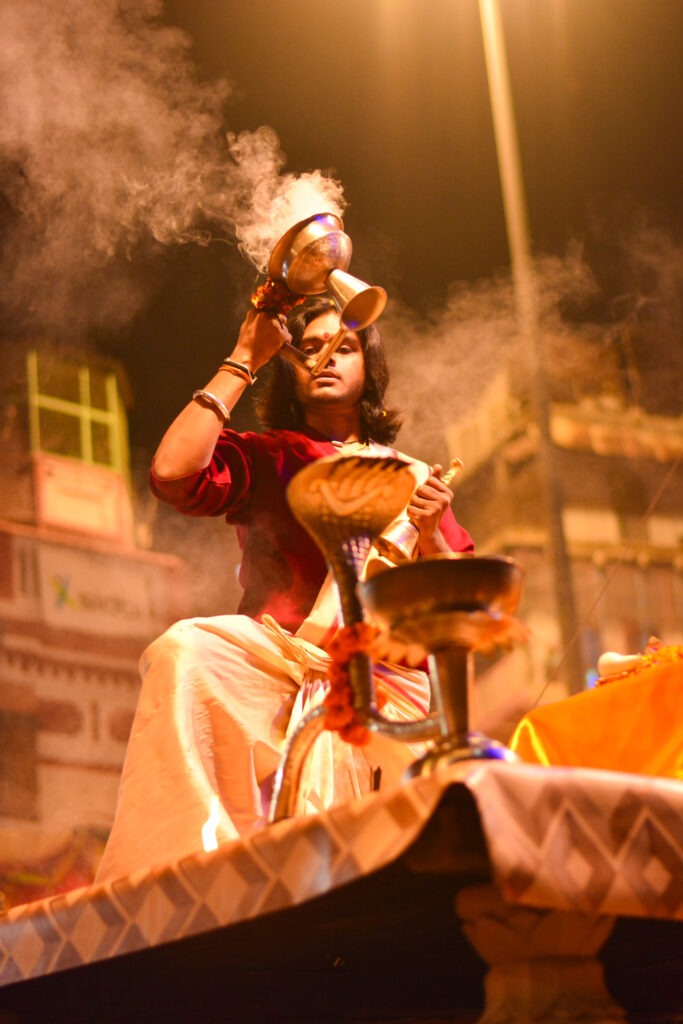- Spirituality Meaning
Exploring the Depths of Gods and Spirituality

Introduction:
India, a land of diversity and cultural richness, boasts an intricate tapestry of gods, goddesses, and
spiritual beliefs that have been an integral part of its heritage for centuries. Rooted in ancient texts,
mythologies, and philosophical teachings, Indian spirituality offers a unique perspective on the
divine and the universe.
The Multifaceted Pantheon:One of the striking features of Indian spirituality is its diverse pantheon of deities. From the mighty
gods like Brahma, Vishnu, and Shiva to the compassionate goddesses like Lakshmi, Saraswati, and
Durga, each entity personifies different aspects of life and the cosmos. These deities often
possess multiple avatars or forms that reflect their various roles and attributes. This multiplicity
highlights the multifaceted nature of the divine and its connection to the human experience.
Symbolism and Allegory:
Indian gods and goddesses are more than just objects of worship; they embody profound
symbolism and allegorical meanings. Their stories and attributes often convey moral lessons and
philosophical concepts. For instance, Lord Ganesha, with his elephant head and penchant for
removing obstacles, represents the removal of impediments on the path of self-realization.
Similarly, the cosmic dance of Lord Shiva, known as the Tandava, symbolizes the eternal cycle of
creation, preservation, and destruction.
Pathways to the Divine:
Indian spirituality encompasses various paths to connect with the divine, catering to different
temperaments and inclinations. The paths of Bhakti (devotion), Karma (action), Jnana
(knowledge), and Dhyana (meditation) offer individuals distinct ways to seek spiritual growth.
Bhakti emphasizes love and devotion to a personal deity, Karma stresses performing one’s duties
selflessly, Jnana focuses on acquiring spiritual knowledge, and Dhyana encourages inner
contemplation and meditation.


Unity in Diversity:
Indian spirituality’s unique feature is its acceptance of diverse beliefs and practices. The concept
of “ekam sat vipraha bahudha vadanti” from the ancient texts Rigveda translates to “Truth is one,
the wise call it by many names.” This philosophy promotes tolerance and respect for all paths that
lead to the ultimate truth, acknowledging that different individuals may connect with the divine in
various ways.
Transcending Time and Boundaries:
Indian spirituality isn’t confined to a specific era or region; it transcends time and geographical
boundaries. The timeless wisdom imparted by ancient texts like the Vedas, Upanishads, Bhagavad
Gita, and Ramayana continues to resonate with seekers around the world. Furthermore, practices
like yoga and meditation, rooted in Indian spirituality, have gained international recognition for their
holistic benefits on the mind, body, and soul.
Conclusion:
The world of Indian gods and spirituality is a rich tapestry that weaves together mythology,
philosophy, and the human experience. Through its diverse pantheon, allegorical teachings, and
various spiritual paths, it offers profound insights into the nature of existence, human potential,
and the connection between the finite and the infinite. As individuals continue to explore the
depths of Indian spirituality, they embark on a journey towards self-discovery, transcendence, and
unity with the divine.



